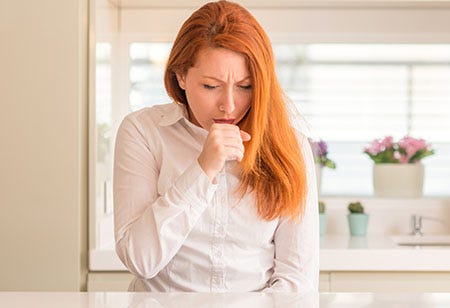The Corona virus will never totally go away. We can’t eradicate it. We will just learn how to live with it. But how?
That is the concept that two Atlantic articles present. Sarah Zhang suggests in an August 17th piece in the Atlantic that we must accept that it will always be with us just like the other 4 Corona viruses that cause the common cold and…then there is the flu. Per the CDC, the latter kills 12,000 to 61,000 Americans per year. We live with that. It never occurs to us to really change our behavior much. Most of us get a flu shot. We just stay away from folks who say they have a “bug”.
Maybe, over time, we’ll just learn to accept to accept Covid as another bug. Maybe we’ll just glaze over when we hear that only 99,000 people a year are dying from Covid. But hey, it’s not a half million! And maybe…with enough people vaccinated, it will be a lot less.
Yesterday, Celine R. Gounder published another article in the Atlantic that supports this proposition. Here is her concluding paragraph:
”Because early data on vaccine effectiveness reinforced the perception that the vaccines could block all infections, news that they do not has unnecessarily shaken many Americans’ confidence. The goal isn’t to eliminate SARS-CoV-2 infections. We can’t, no matter how many booster shots the United States gives. The goal is to slow the spread, save lives, and eventually turn COVID-19 into something much less deadly—something more like the flu.”
So maybe that’s the journey. We get to stop thinking of Covid as a pandemic or a plague. Just another ailment. Something they will call “endemic”. Which means: “a disease or condition regularly found among particular people or in a certain area.” Just part of life (or death if you are unlucky or careless.)
And what if we were to grab a lesson from this nightmare? What if we were to make just a few changes in our behavior? Getting vaccinated would be obvious. That’s going to take a lot of peer pressure, financial penalties and regulation. Wearing a mask on a regular basis in public buildings is another idea. I noticed, along with many friends, that last winter I did not get a cold or the flu. Hmm. If I added up my lost time from colds and the flu on an annual basis it would be roughly anywhere from 14 to 30 days. That’s a big chunk of my time to suffer discomfort and be unproductive. Hmm.
And then there is the uncomfortable truth about building ventilation. It is currently safer to be in an airplane than a school or restaurant from an air quality point of view. There would be a lot of jobs created if we seriously addressed this. It could be in conjunction with retrofitting them to be more energy efficient. Not a crazy idea.
Here are the concluding paragraphs of Sarah Zhang’s article. I think it contains some practical ideas. The economy doesn’t shut down. We live good lives. But it will require most people to be vaccinated and some minor behavioral adjustments. To do otherwise is to offer the virus an opportunity to morph into something far worse. Are you in?
“The transition to endemic COVID-19 is also a psychological one. When everyone has some immunity, a COVID-19 diagnosis becomes as routine as diagnosis of strep or flu—not good news, but not a reason for particular fear or worry or embarrassment either. That means unlearning a year of messaging that said COVID-19 was not just a flu. If the confusion around the CDC dropping mask recommendations for the vaccinated earlier this summer is any indication, this transition to endemicity might be psychologically rocky. Reopening felt too fast for some, too slow for others. “People are having a hard time understanding one another’s risk tolerance,” says Julie Downs, a psychologist who studies health decisions at Carnegie Mellon University.
With the flu, we as a society generally agree on the risk we were willing to tolerate. With COVID-19, we do not yet agree. Realistically, the risk will be much smaller than it is right now amid a Delta wave, but it will never be gone. “We need to prepare people that it’s not going to come down to zero. It’s going to come down to some level we find acceptable,” Downs says. Better vaccines and better treatments might reduce the risk of COVID-19 even further. The experience may also prompt people to take all respiratory viruses more seriously, leading to lasting changes in mask wearing and ventilation. Endemic COVID-19 means finding a new, tolerable way to live with this virus. It will feel strange for a while and then it will not. It will be normal.”





